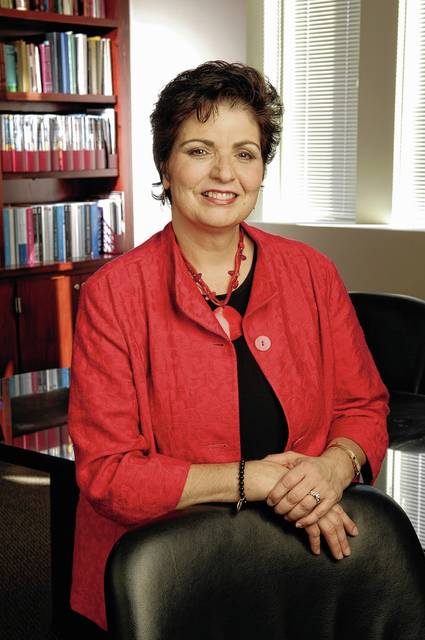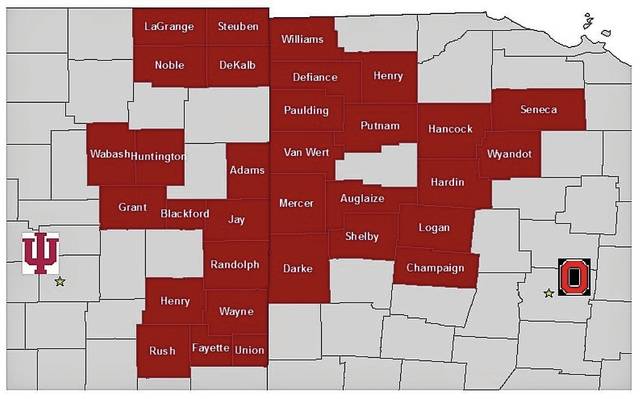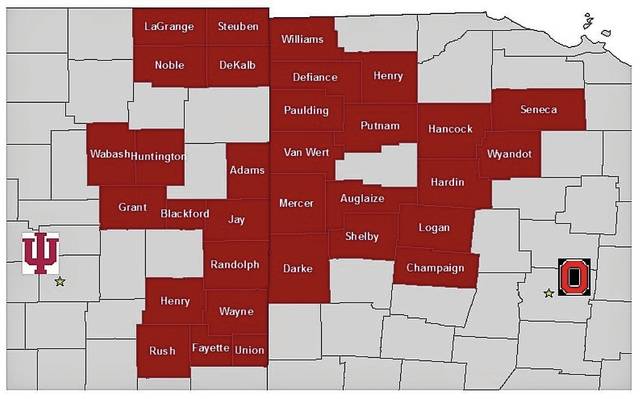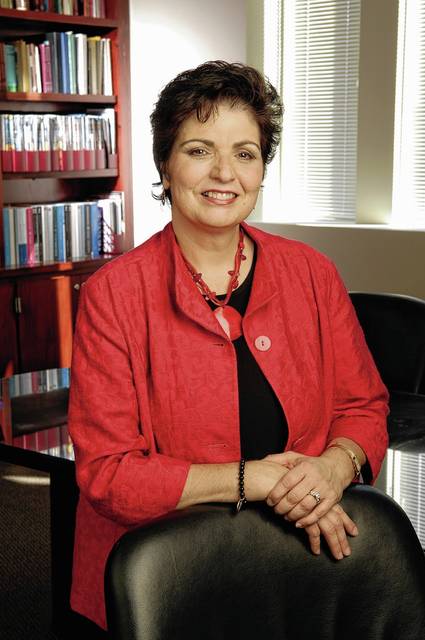



DARKE COUNTY — Women from age 50 to 75 years of age in rural areas of western Ohio and eastern Indiana are being asked to participate in research that could save their lives, as well as the lives of women living in rural areas throughout the United States.
RISE (Rural Interventions for Screening Effectiveness) is a project of Indiana University and The Ohio State University Comprehensive Cancer Center-Arthur G. James Cancer Hospital and Richard J. Solove Research Institute.
The goal of RISE is to determine how best to inform rural women of their risks for breast, colorectal and cervical cancers and convince them not only to get screened for these diseases at the recommended intervals, but to get follow-up screenings and treatment necessary for their health.
Letters seeking women’s participation in the study are being mailed to women in 16 Ohio counties and 16 Indiana counties. Although 1,058 participants are being sought, fewer than 10 women have responded, according to Dr. Electra Paskett, leader of the cancer control research program at OSU’s Comprehensive Cancer Center and the primary investigator of RISE.
The 32 counties in the study include the Ohio counties of Champaign, Darke, Logan and Shelby. The following statistics indicate the annual rate of cancer incidences per 100,000 women in each county:
*Breast: Champaign – 116.7; Darke – 113.1; Logan – 129; Shelby – 85.4
*Cervical: Champaign – 4.9; Darke – 3.1; Logan – 12.1; Shelby – 1.8
*Colorectal: Champaign – 34.6; Darke – 56.1; Logan – 37.3; Shelby – 24.1
Limited medical research in rural areas
Paskett and her team have conducted research in rural areas in the past, especially in southeast Ohio, but she said medical research in rural areas is not the norm.
“We have been fighting for years to get rural communities recognized,” she said. “This study is one of the first in completely rural areas addressing three cancers simultaneously.”
She said women in rural areas are “underserved” in that research has been minimal and access to medical assistance is limited.
The RISE project divides participants into three groups, each of which receives information and advice about breast, cervical and colorectal cancers in different ways. The women will be tracked for a year to see which method of disseminating information is the most effective in convincing women to be screened and obtaining follow-up care.
“We won’t include women already getting all three of the screenings,” Paskett said, explaining the project only will include women who have not received all screenings deemed necessary to detect all three types of cancer.
“The goal of the study is to test two different ways to see if we can get women in need of cancer screenings to get those tests,” Paskett said. “We hope we will see if either option will increase screening rates.”
One of every five participants only will receive a newsletter with general information she may receive in a doctor’s office.
Two of every five participants will receive an interactive DVD through the mail. Using a clicker, participants will answer questions such as when they last were screened for particular cancers. If they have not been screened at the appropriate times, they will be asked why. Their answers will determine which parts of the DVD they will access.
Perhaps a participant says she is afraid of a particular screening or of what the result may be. She will find advice/information about those concerns. Participants will hear rural women who have had cancer talk about their experiences.
Perhaps a participant is not aware she needs a particular screening or does not know where she can get the screening or how she will pay for it. The DVD will tell her how to get that information.
Two of every five participants will receive the DVD, but also will receive additional assistance in the form of “patient navigation.” After the participant views the video, she will receive a phone call from a patient navigator, an adviser who will answer questions, ask questions and, if needed, get more information for the participant, help schedule appointments, locate medical providers and listen to concerns.
Many women would welcome such advice, Paskett said, because of the amount of information available, some of it contradictory and some of it changing over the years.
The interaction between participant and navigator will continue through various screenings and, if needed, treatments.
Women in all three project groups will be asked to complete phone surveys, one at the beginning of participation and one at the end. The final survey will ask about screenings, results, treatments, all of which will be verified by medical providers, Paskett said.
She said women will receive gift cards after completing each of the two surveys as a token of thanks for their participation.
She added that once a participant receives the DVD, she will be asked to view it within a couple weeks. She said each participant likely will be in the project about a year, digesting the information, scheduling appointments, etc.
How to participate
Women wishing to participate in the project can respond to the mailed request for participation or they can contact the RISE program at [email protected] or at, toll-free, 1-877-304-2273. Recruitment will continue a couple years, Paskett said.
Women in the following counties are invited to join the project:
In Ohio: Williams, Defiance, Paulding, Van Wert, Mercer, Darke, Henry, Putnam, Auglaize, Shelby, Hancock, Hardin, Logan, Champaign, Seneca and Wyandot.
In Indiana: LaGrange, Noble, Steuben, DeKalb, Adams, Wabash, Huntington, Grant, Blackford, Jay, Randolph, Henry, Wayne, Rush, Fayette and Union.
After results of the project are analyzed and compiled, which may take a few years, the plan is to present results at national meetings and to local and national media and publish results in scientific journals. Summaries will be distributed to women who participated in the project.
Paskett said there are signs of increased attention to medical care and research in rural areas. In early May, the National Cancer Institute held a conference in Memphis, Tennessee, for medical researchers titled “Rural Cancer Control: Challenges and Opportunities.” Topics addressed the limited access to medical providers and the limited support for preventive care in rural areas.
“Things are changing,” Paskett said, adding this signifies a positive turn for many people. “A good portion of the country is rural and a good portion of the population lives in rural areas.”






